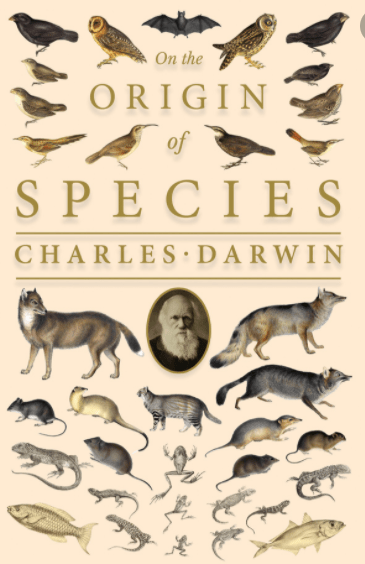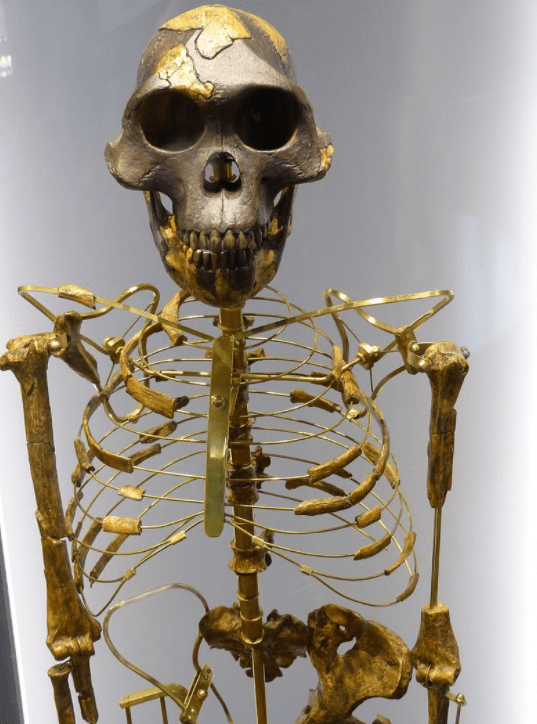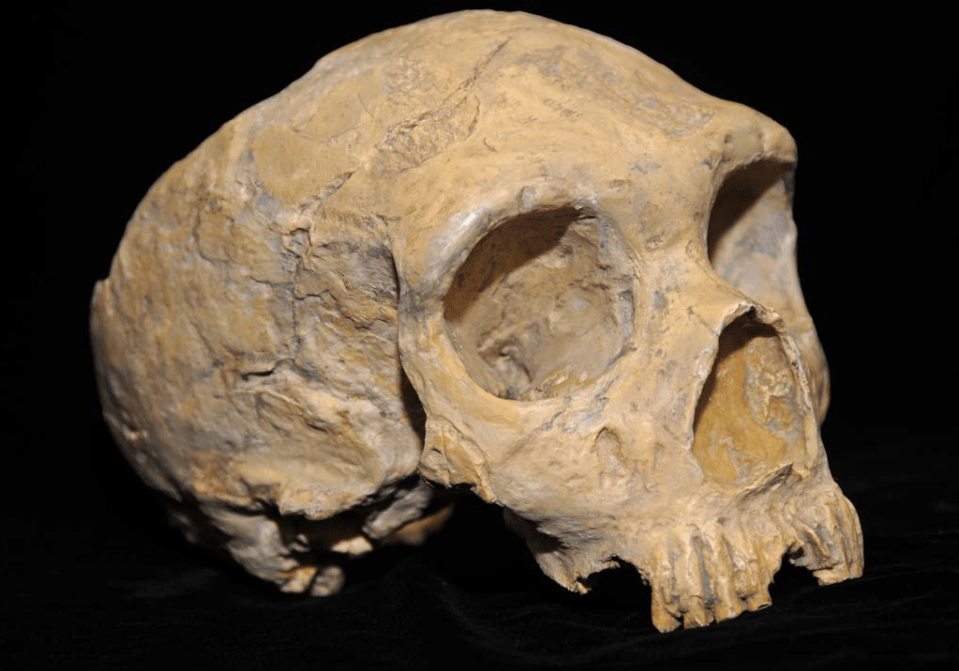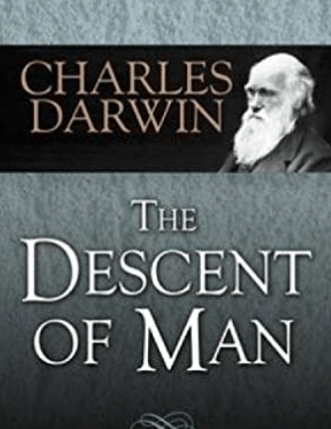By John Pickard
It is 150 years this year since Darwin published his book The Descent of Man. He developed the main outline of his ideas on evolution in Origin of Species, twenty years before he came to publish them, and one of the reasons for that was his difficulty in reconciling his theories with established religion and philosophy.
When he finally came to publish Origin, he left aside the question of human evolution in one enigmatic phrase: “light will be thrown on the origin of Man and his history.” He was clearly reluctant to apply his ideas to human development. But the implications were already clear, so twelve years later, in 1871, he published The Descent of Man, bringing the origins of humanity into the discussion about natural evolution.
His theories inevitably meant that his supporters found themselves clashing with the established Church and its leaders, who were most reluctant to cede any ground on evolution at all, much less on human evolution. It was bad enough that a theory debunked the whole Creation myth of Genesis, but to displace human beings from their lofty pedestal ‘set above’ all the rest of the animal kingdom was even worse.
Marx and Engels on Darwin
For the founders of dialectical materialism, the ideas of Darwin represented a brilliant confirmation of their world view. Darwin did not speak in the same language, of dialectical change, but his ideas certainly groped in that direction. What was more important to Marx and Engels was that the entire basis of what became known as Darwinism was rooted in a materialist standpoint. There were no chapters in Origin of Species or The Descent of Man for angels, spirits or gods.
In January 1861, Marx wrote to Engels: “Darwin’s book [Origin] is very important and serves me as a natural scientific basis for the class struggle in history. One has to put up with the crude English method of development, of course. Despite all deficiencies, not only is the death-blow dealt here for the first time to ‘teleology’ [the explanation of phenomena by their purpose – JP] in the natural sciences but its rational meaning is empirically explained.”

Writing in his book, Anti-Dűhring, Engels anticipated the further development of Darwin’s ideas: “The theory of evolution is however still in a very early stage, and it therefore cannot be doubted that further research will modify our present conceptions, including strictly Darwinian ones, of the process of the evolution of species.”
Indeed, in the years since the publication of Origin, Darwin’s ideas have not been refuted by science, but have been clarified, refined, quantified, deepened and developed by a vast accumulation of experimental evidence. Although it is now recognised that natural selection is not the only mechanism of evolution, it is still seen as the main driver in the development of new species, or strains of microorganisms like coronaviruses.
Human evolution in particular
What is true of evolution in general is true of human evolution in particular. Since the discovery of the australopithecines – apes walking upright like humans and with almost human hands – a whole range of similar discoveries have added to our rich treasury of knowledge. It is clear that it was the upright gait and the evolution of the hand that were the key factors in the acceleration of an early ape-like species to become modern homo sapiens.
What is clear also, and is something considered so by Darwin, is that human evolution society was key. Darwin flatly refuted the famous dictum of Margaret Thatcher more than a century later, that “there is no such thing as society.” Darwin wrote, contradicting this idea, that “Everyone will admit that man is a social being.”
In The Descent of Man, Darwin makes many hints about the importance of social development. Such as this: “…the social instincts, which must have been acquired by man in a very rude state, and probably even by his ape-like progenitors, still give the impulse to some of his best actions”.
And this: “As soon as the progenitors of man became social (and this probably occurred at a very early period), the principle of imitation, and reason, and experience would have increased, and much modified the intellectual powers in a way, of which we see only traces in the lower animals.”
Social evolution not important to Darwin
But he did not pursue the issue in any depth at that point. “…it is probable that the early ape-like progenitors of man were likewise social; but this is not of much importance for us.” What was then of not much importance to Darwin was in fact central to human evolution.

As all anthropologists would now argue, from even before the australopithecines, and certainly afterwards, biological (physical) evolution interacted with cultural evolution. The physical changes in human anatomy, particularly in the brain, did not happen in the abstract, but in the concrete conditions of a social and cultural life. The developments of the brain, with its capacities for language, memory, abstract thoughts and reasoning are essentially social and cultural products and only took place because of the social interactions within early human society.
Social and cultural evolution, interacting with anatomical and physiological evolution, is accepted by the huge majority of anthropologists today. It is an idea brilliantly anticipated by Friedrich Engels in The Part Played by Labour in the Transition from Ape to Man, an essay written a hundred years ago, but not published in his lifetime.
Many similar and parallel human-like species developed
This is not the place for an exposition of all the complexities of human evolution, but it is important to note that there was not one ‘line’ of development from apes to humanity. There were many similar or parallel species evolving at different times and at different places, often overlapping, but with the same essential dynamic, of social and cultural evolution interacting with physical, biological change. The best-known species similar to modern humans were the Neantherdals, who, it is now thought, lived alongside early modern humans for thousands of years.
Homo Neanderthalensis generally gets a bad press. They are often portrayed as brutish and crude, alongside their more lithe ‘human’ cousins. But in fact, the Neanderthals were also cultured. They lived in societies, made tools, fashioned jewellery, ritualistically buried their dead and created cave paintings.
Neanderthals were certainly more physically robust than other proto-humans and their culture may have followed a different path. It has been suggested, for example, that whereas their cousins tracked and hunted animals, Neanderthals had the ability and strength to take their prey by ambush.

It may have been subtle differences in cultural development – even the relative size of the communities – that could have been enough to make one species flexible enough to survive ecological challenges, where the other died out.
Neanderthal DNA in modern humans
Neanderthals did not disappear, however, without leaving their mark. Apart from cave paintings, a percentage of Neanderthal DNA resides inside us all, showing that at some point in the past there was successful interbreeding between the two strands of humanity.
The most important contribution of Darwin is not that he got everything right – in the middle of the nineteenth century how could he? His contribution was to place the origins of humanity squarely in the natural world for the first time, tearing it away from pre-science origin-myths and fables.
It is clear from Darwin’s papers that his scientific studies did have some influence on his private thoughts, although he did not speak out publicly against the Church. In his autobiography, he wrote: “The old argument from design in nature…which formerly seemed to me so conclusive, fails, now that the law of natural selection has been discovered. There seems to be no more design in the variability of organic beings and in the action of natural selection, than in the course which the wind blows.”
Darwin discarded the Bible
On the existence of a ‘Creator’ he wrote to his friend Charles Lyell in September 1874: “Many persons seem to make themselves quite easy about immortality and the existence of a personal God by intuition; and I suppose that I must differ from such persons, for I do not feel any innate conviction on any such points.” Again, in a letter to F A McDermott, in November 1880, he wrote: “I am sorry to have to inform you that I do not believe in the Bible as a divine revelation, and therefore not in Jesus Christ as the son of God.”
Darwinism has become one of the most important ‘isms’ of our age. Despite the influence of religious fundamentalism, it is an idea accepted by the large majority of scientists today. Darwin’s basic theory of evolution remains today the ‘grand unifying theory’ of biology and human evolution sits within it. Evolution is an idea that is embedded in modern culture. A Google search will show today 550m hits for Origin of the Species, over 6m hits for Darwinism and 1.9bn for natural selection.
It is entirely appropriate, therefore, for Marxists to celebrate the works of Charles Darwin, possibly the most influential natural scientist of all time. Although his ideas were in this or that respect not fully rounded out or developed, they placed the entire science of biology on a solid materialist foundation for the first time and placed the biology of human development firmly within it.
This includes extracts of an article written by the author in February 2009, on the 150th anniversary of Origin of Species.



